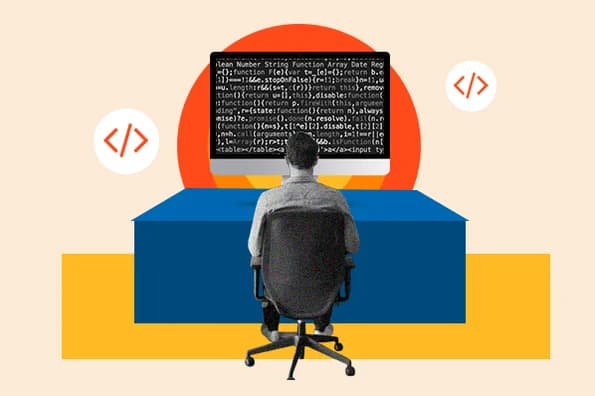Ever wondered how apps like Instagram or games like Fortnite are made? It all starts with programming! If you’re new to the world of coding, don’t worry – it’s like learning a new language, and anyone can do it. Ready to take your first steps into this exciting digital realm? Let’s dive in!
What Exactly is Programming?
Imagine programming as the art of giving instructions to a computer, telling it what to do. Think of it as teaching a very diligent but literal-minded assistant. You tell it to add two numbers, and it does. You ask it to show a picture, and voilà – the picture appears!
Programming languages are the tools we use to communicate with computers. Just as English, Spanish, or Chinese help people communicate, languages like Python, JavaScript, and C++ help us tell computers what to do.
Table 1: Popular Programming Languages and Their Uses
| Language | Primary Uses | Difficulty Level | Created In |
| Python | Web development, data analysis, AI | Beginner-friendly | 1991 |
| JavaScript | Web development, mobile apps | Intermediate | 1995 |
| C++ | Game development, systems programming | Advanced | 1983 |
| Java | Enterprise applications, Android apps | Intermediate | 1995 |
| Swift | iOS and macOS app development | Beginner-friendly | 2014 |
Why Should You Learn to Code?
Coding isn’t just for tech geeks. It’s a superpower that can open doors to endless opportunities. Whether you want to build the next big app, solve complex problems, or just automate boring tasks, programming has got you covered. Plus, it’s fun – like solving puzzles or playing with LEGO blocks but digitally!
Here’s a little trivia: The global coding job market is booming. According to the U.S. Bureau of Labor Statistics, the employment of software developers is projected to grow 22% from 2020 to 2030, much faster than the average for all occupations. So, whether you dream of being the next Bill Gates or simply want to make your daily tasks easier, coding is the way to go.
Choosing Your First Programming Language
Choosing your first programming language is like picking your first car. You want something reliable, easy to handle, and suited to your needs.
Table 2: Beginner-Friendly Programming Languages
| Language | Pros | Cons |
| Python | Easy syntax, versatile, lots of libraries | Slower performance for some tasks |
| JavaScript | Essential for web development, high demand | Can be tricky with asynchronous code |
| Scratch | Visual and intuitive, great for kids | Limited to educational projects |
| Ruby | Clean syntax, great for web development | Less popular in recent years |
| Swift | Powerful and fast, great for Apple devices | Limited to Apple ecosystem |
Python is often the go-to choice for beginners because it’s simple and versatile. JavaScript is perfect if you’re interested in web development. If you’re looking for something visual and interactive, Scratch is a fantastic starting point, especially for younger coders.
Getting Your Hands Dirty: Writing Your First Program
Ready to get coding? Let’s start with a simple program that says “Hello, World!” This classic first program is the equivalent of learning to say “hello” in a new language.
Example: “Hello, World!” in Python
python
Копировать код
print(“Hello, World!”)
In Python, you just write print(“Hello, World!”) and run it. It’s that simple! This tiny program tells the computer to display the text “Hello, World!” on the screen.
Resources to Kickstart Your Coding Journey
The internet is a treasure trove of resources for budding programmers. Here are some great places to start:
Table 3: Top Resources for Learning Programming
| Resource | Type | Best For |
| Codecademy | Interactive courses | Beginners and intermediate coders |
| Coursera | Online courses | Structured learning paths |
| Khan Academy | Free tutorials | Younger learners and beginners |
| FreeCodeCamp | Hands-on projects | Practical learning and projects |
| GitHub | Code repository | Exploring real-world projects |
These platforms offer a mix of interactive lessons, video tutorials, and hands-on projects. They cater to all skill levels and are a great way to start coding without feeling overwhelmed.
Personal Tip:
Try to set small, achievable goals for your coding practice. For example, start with a simple calculator program or a basic website. This will keep you motivated and help you build confidence as you progress.
Your Journey Begins Here
Coding is like a superpower that can transform ideas into reality. Whether you want to build a website, develop an app, or just understand the tech that powers our world, programming is your ticket. Remember, every expert coder started as a beginner. So, take it step by step, enjoy the process, and don’t be afraid to make mistakes – they’re just stepping stones to success.
Now, grab your laptop, choose a language, and start typing away. Who knows, your “Hello, World!” might just be the start of the next big thing!
Q&A Section
Q1: How much time does it take to learn programming? A: It depends on your goals and how much time you dedicate to learning. Some people can grasp the basics in a few weeks, while others may take months to get comfortable. Regular practice is key!
Q2: Do I need a computer science degree to become a programmer? A: Not necessarily! Many successful programmers are self-taught. Online courses, coding bootcamps, and practical experience can often be more valuable than formal education.
Q3: What’s the best way to stay motivated while learning to code? A: Set small, achievable goals and celebrate your progress. Join coding communities, take on fun projects, and remember why you started – whether it’s building your own game or automating a task.

